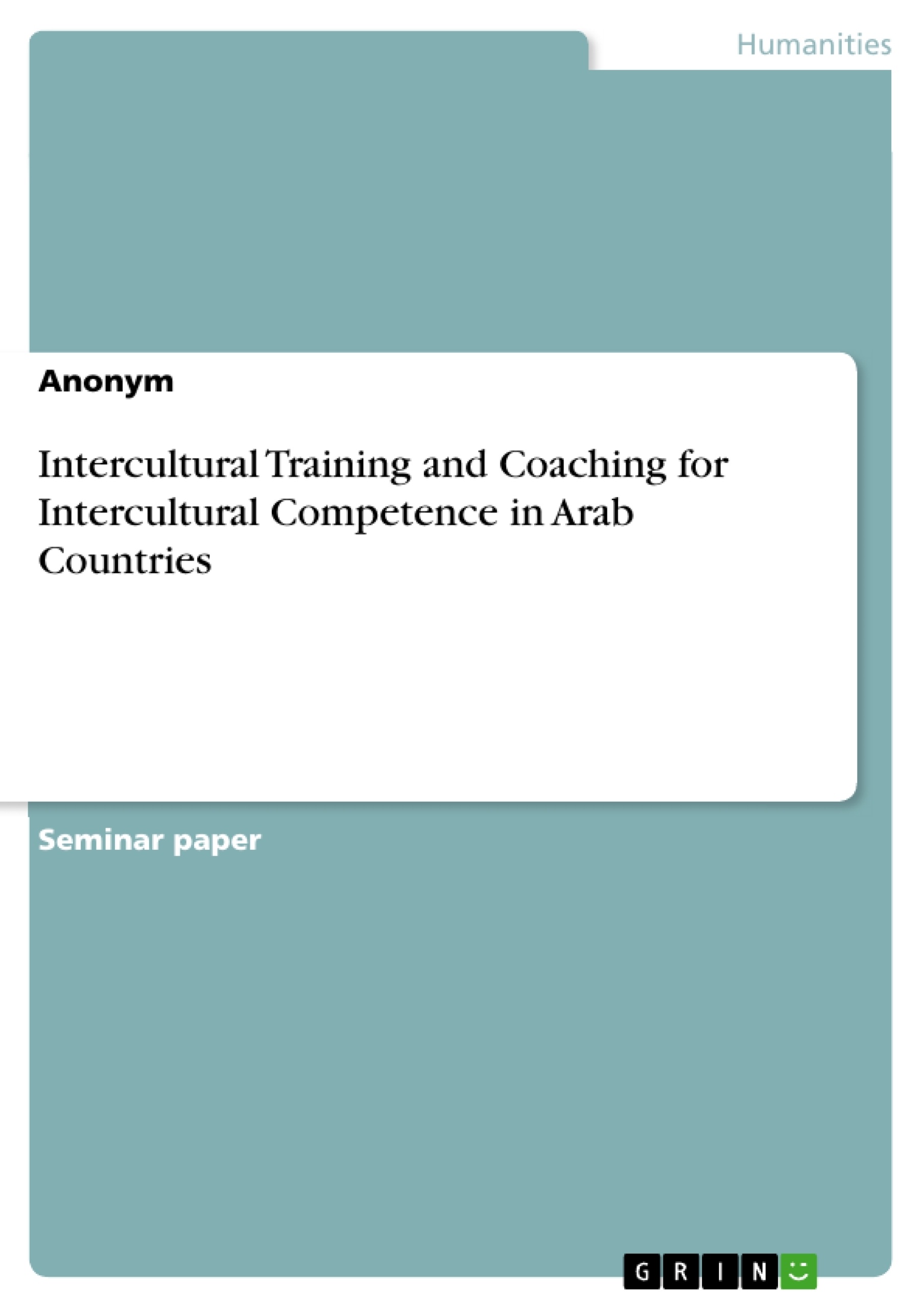In a world characterized by migration, demographic change and increasing globalization, societies are faced with personal diversity. In recent years, the Arab region has increasingly become the focus of German companies. This is not only related to geographical location, but also to mineral resources such as black gold. The United Arab Emirates, in particular, has huge development potential. For example, in less than half a century, modern Dubai has grown from a pearling center to the most important trading center in the Arab world. Growing economic strength and investment capacity mean that German companies are interested in long-term business relationships.
Intercultural competence as a key qualification in the field of intercultural movement (including Lüsebrink 2008, Bolten 2005) refers to the capability to adequately handle, communicate and understand people from a foreign culture, i.e. suit their value system and communication style. Comprehension, a dimension of intercultural competence, refers to the ability to read, understand, and interpret the values and symbolic codes of other cultures. As an interpretive process, intercultural understanding has cognitive, knowledge-based (knowledge of foreign languages, knowledge of a specific culture) and affective (patterns of emotional responses to foreignness) dimensions (cf. Lüsebrink 2008).
In cases where the culture of the target countries, where employees are deployed, diverges significantly from Western European culture, "intercultural awareness" becomes instrumental in preventing premature termination of assignments. This safeguards against disruptions in communication with business partners in the Arab region.
Another crucial aspect of intercultural training for Arab countries is the unbiased presentation of the Islamic religion, particularly the cross-religious values, norms, and cultural standards that have shaped public and private life throughout the region.
When conveying information about cultural specifics in seminars, there should be elements of traditional cultural studies, including history, economics, political institutions, legal systems, religions, geography, and minorities (Volkmann/Stierstorfer/Gehring 2002).
Inhaltsverzeichnis (Table of Contents)
- 1 Content
- 1- Introduction
- 2- Preliminary Considerations for the Seminar
- 2.1 Target Audience
- 2.2 Seminar Objective
- 2.3 Seminar Preparations
- 2.4 Seminar Methods
- 2.5 Media in the Seminar
- 3- Seminar Concept
- 3.1 Introduction to the Seminar and Training
- 3.2 Initial Orientation Phase "Culture and Stereotypes"
- 3.2.1 Exercise "iceberg"
- 3.3 Perception of Others: "Stereotypes and Prejudices"
- 3.3.1 Moderation exercise to develop "stereotypes"
- 3.3.2 Facilitation Exercise: Analysis of "Role Models and Values"
- 3.4 Information Phase: Religion "Learning Path"
- 3.5 Deepening Phase "Cultural Standards"
- 3.5.1 Facilitation Exercise: Development of Cultural Standards
- 3.5.2 Case Analysis "Arab Hierarchy in the Workplace"
- 3.6 Role Plays and Simulations in Intercultural Seminars
- 3.6.1 Role play "Greeting"
- 3.6.2 Simulation game “Maintaining distance”
- 3.7 Intercultural Acculturation: "Culture Shock"
- 3.8 Result of integration and final phase
- 4- Conclusion
- 5- Bibliography
Zielsetzung und Themenschwerpunkte (Objectives and Key Themes)
This seminar preparation focuses on the methodology and didactics for a one or two-day seminar on intercultural training and coaching for intercultural competence in Arab countries. The objective is to equip participants with the necessary knowledge and skills to navigate cultural differences effectively and develop intercultural competence. The seminar aims to create a more sensitive and constructive approach to cultural diversity, fostering empathy and awareness of both foreign and individual cultures.
- Developing intercultural competence for navigating cultural differences in the Arab region.
- Understanding the role of culture in shaping individual perception, thinking, and actions.
- Raising awareness of cultural standards and values in Arab countries.
- Exploring methods and techniques for effective intercultural communication and conflict management.
- Addressing the phenomenon of culture shock and providing strategies for coping with it.
Zusammenfassung der Kapitel (Chapter Summaries)
The seminar concept is divided into various stages, each focusing on different aspects of intercultural training. The initial phase introduces participants to the seminar topic and provides a basic understanding of cultural differences. This includes exercises exploring the concept of culture and its influence on individual perception, as well as the role of stereotypes and prejudices. The seminar then moves on to a more in-depth exploration of Arab culture, including its historical and religious context, specific cultural norms, and communication styles.
The following chapters delve into practical applications of intercultural training through role-playing and simulation games, designed to provide participants with hands-on experience in handling diverse communication situations and cultural sensitivities. These activities also address the phenomenon of culture shock and offer strategies for coping with it. The final stage of the seminar focuses on integrating the acquired knowledge and skills into daily life, aiming to foster a sustainable understanding and appreciation of cultural diversity.
Schlüsselwörter (Keywords)
The seminar focuses on intercultural training, intercultural competence, Arab culture, cultural sensitivity, communication styles, conflict management, culture shock, and coping strategies. These keywords encapsulate the core themes and concepts explored throughout the training program, providing a comprehensive framework for developing effective intercultural skills in a globalized world.
- Quote paper
- Anonym (Author), 2024, Intercultural Training and Coaching for Intercultural Competence in Arab Countries, Munich, GRIN Verlag, https://www.hausarbeiten.de/document/1463555



